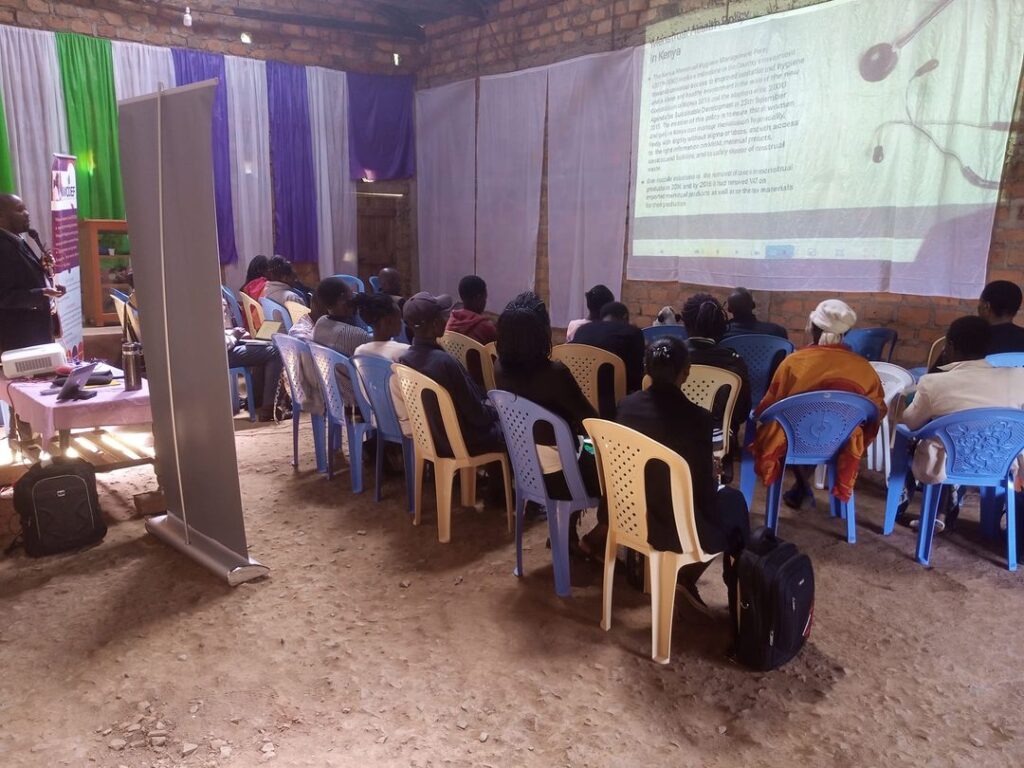
In a serene village nestled within rural Kenya, a remarkable milestone was achieved in the realm of menstrual health and hygiene.
Innovative Workshop Unveils a Transformative Solution
Thanks to the unwavering dedication of WODEF (Women Development Fund), Robert Mwakio representing the Amsha Africa Foundation (AAF), and esteemed partners including Paul Rop Foundation (PRF), PATH, and others, a groundbreaking 5-day workshop on dignity pads unfolded.
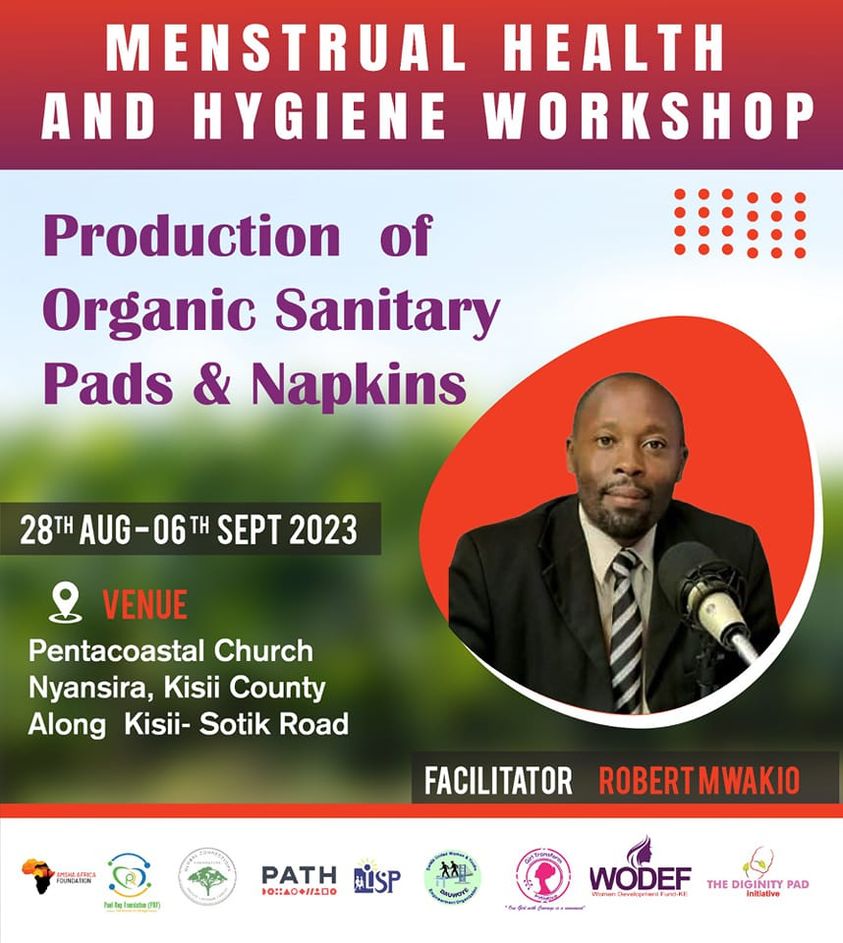
This initiative aims to elevate sexual reproductive health among young women and girls in Kenya, focusing on producing Organic Sanitary Pads and Napkins using banana stems.
The ultimate goal is to alleviate the financial burden faced by young women and girls in poverty-stricken families when purchasing conventional sanitary pads.
The project strives to ensure that no girl misses school due to a lack of sanitary pads, while also combating the high stigma attached to menstrual management in communities.
Harnessing Nature’s Bounty: Banana Stems as Sanitary Pads
The workshop, held in Nyansira, Kisii County, Kenya, was a testament to the collaborative spirit that drives positive change. Villagers from all walks of life converged to participate in this transformative event. Central to the spotlight was an ingenious solution that captured everyone’s attention – the creation of sanitary pads using abundant banana stem fibers.
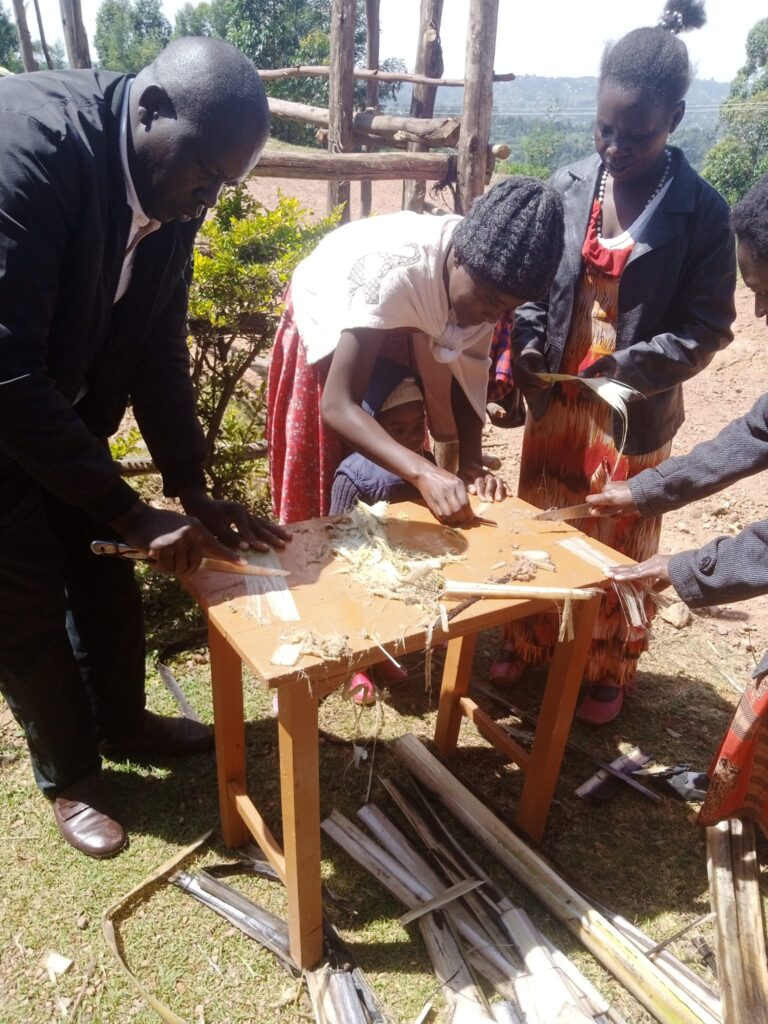
A Remarkable Revelation: From Waste to Innovation
Yes, you read that right – banana stems transformed into sanitary pads! This revelation formed the core of the workshop’s innovative approach. But the ingenuity didn’t stop there. The workshop harnessed the natural antibacterial properties of aloe vera and eucalyptus sap, ensuring that the pads remained infection-free.
Building Partnerships for Sustainable Change
WODEF, Amsha Africa Foundation (AAF) and other partners played a pivotal role in nurturing partnerships for sustainable sanitary pad production across the Global South. With a keen focus on menstrual health and environmental sustainability, AAF collaborated with local NGOs like WODEF, communities, and government agencies to explore the utilization of banana stems as a viable material for sanitary pads.
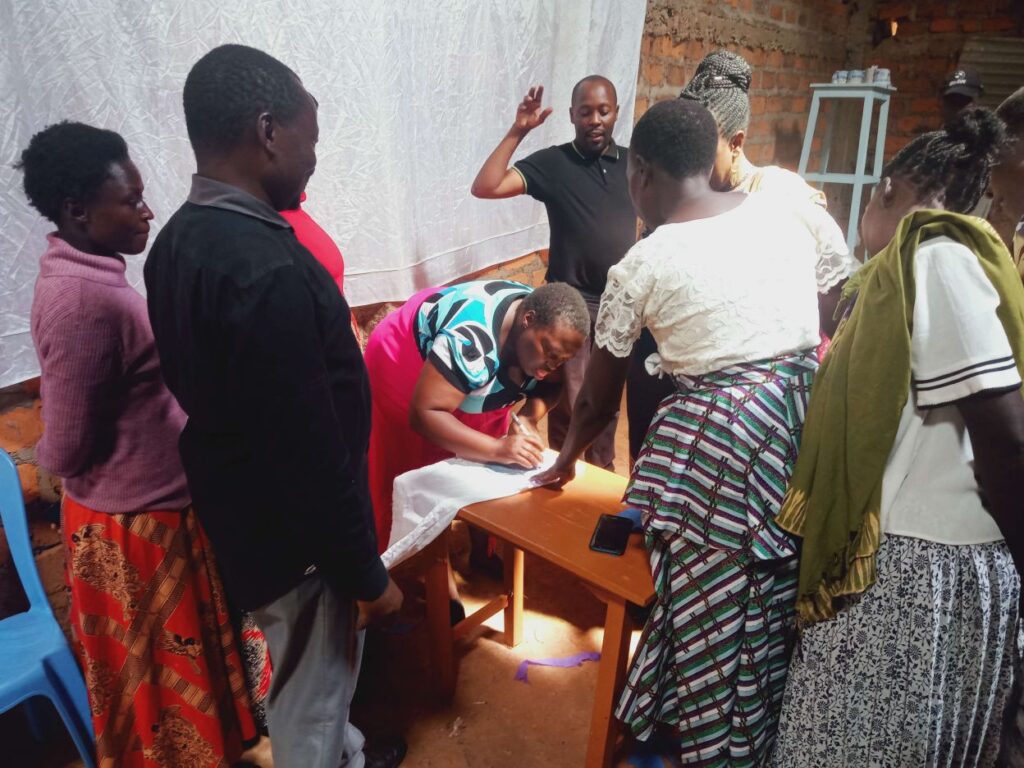
Catalyzing Change: AAF’s Collaborative Approach
Through these strategic partnerships, AAF facilitated knowledge sharing, research, and pilot projects to test the feasibility and effectiveness of this innovative approach. By closely collaborating with stakeholders across East Africa, AAF leveraged regional expertise and resources, contributing to the development of sustainable menstrual hygiene solutions that empower women and promote ecological preservation.
A Glimpse of a Transformed Future
These collective efforts underscore AAF’s commitment to driving meaningful and impactful change in the region’s menstrual health landscape.
A Bright Beginning: The Promise of Change
The success of the Nyansira workshop shines a spotlight on the potential for positive transformation within every community. Menstrual health, a topic often relegated to the shadows, now commands center stage in rural Kenya. This journey has only just commenced, and the AAF model stands ready to be scaled and replicated in other regions, igniting a wave of change that knows no bounds.
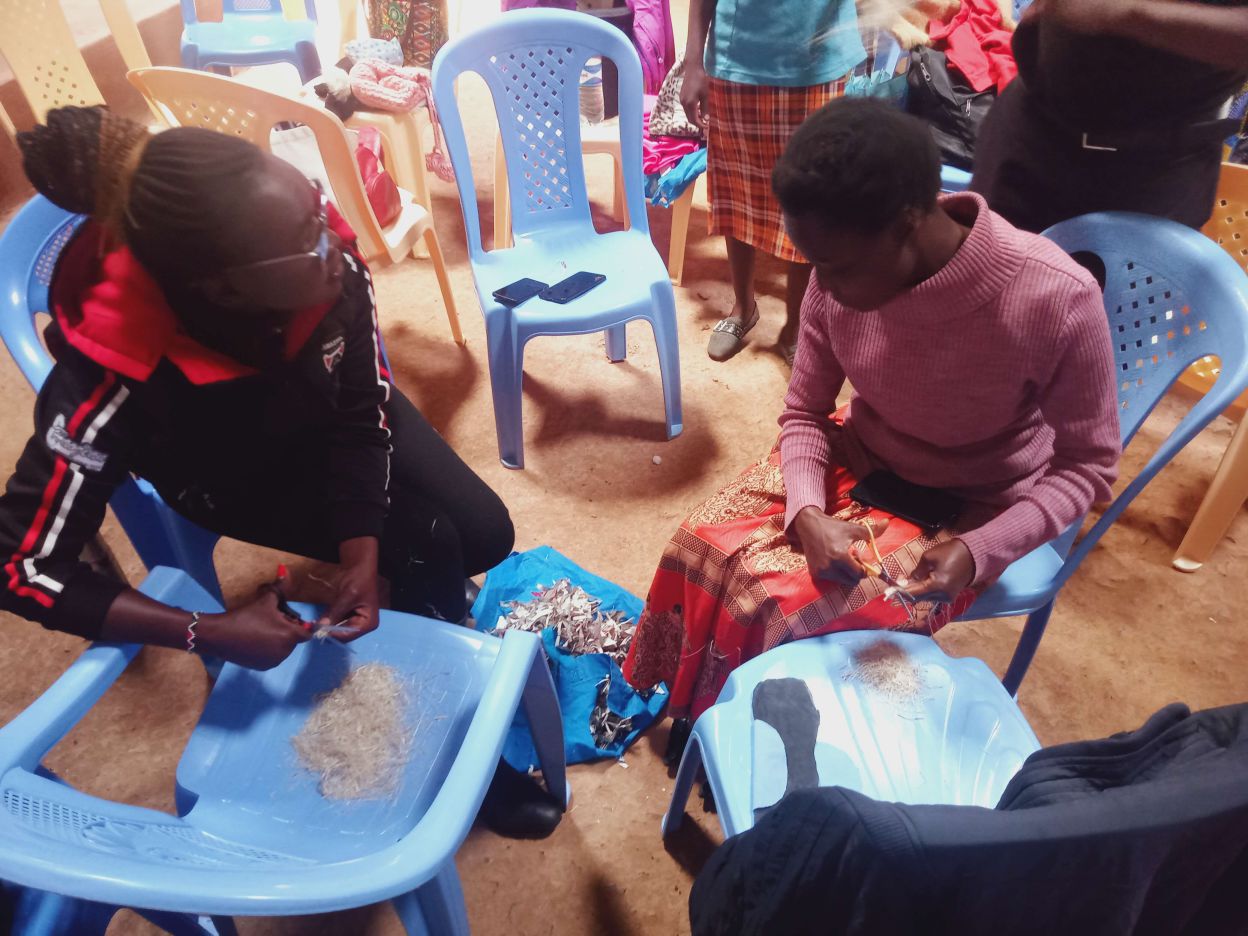
Empowerment through Education: Crafting Change with Partners
Discover more about crafting these revolutionary sanitary pads using banana stems at our project page here. https://amshaafrica.org/index.php/elementor-5400/
A Collaborative Endeavor: Transforming Lives
WODEF, in partnership with Amsha Africa Foundation and with the active engagement of esteemed organizations like Paul Rop Foundation (PRF), PATH, Global Connection Foundation, Life Skill Promoters, Integrated Development Facility (IDF), Girl Transform Initiative, and Daraja Women and Youth Empowerment (DAWUOYE), is currently conducting a 5-Day training Workshop on Menstrual Health & Hygiene Management. The focus is on producing Organic reusable sanitary towels and Baby Napkins using banana stalk fibers. This transformative workshop trains over 50 participants representing various women groups and organizations from Kisii and Nyamira Counties of Kenya.
Empowering Women: Creating Sustainable Solutions
The Workshop’s core objective is to build the capacity of Trainers of Trainees (TOTs) to acquire essential skills and knowledge. These skills empower impoverished families to create reusable organic sanitary towels and baby napkins, alleviating financial constraints while contributing to the localization of UN Sustainable Development Goals (SDGs) 3 (Good Health & Wellbeing), 4 (Quality Education), and 5 (Gender Equality).
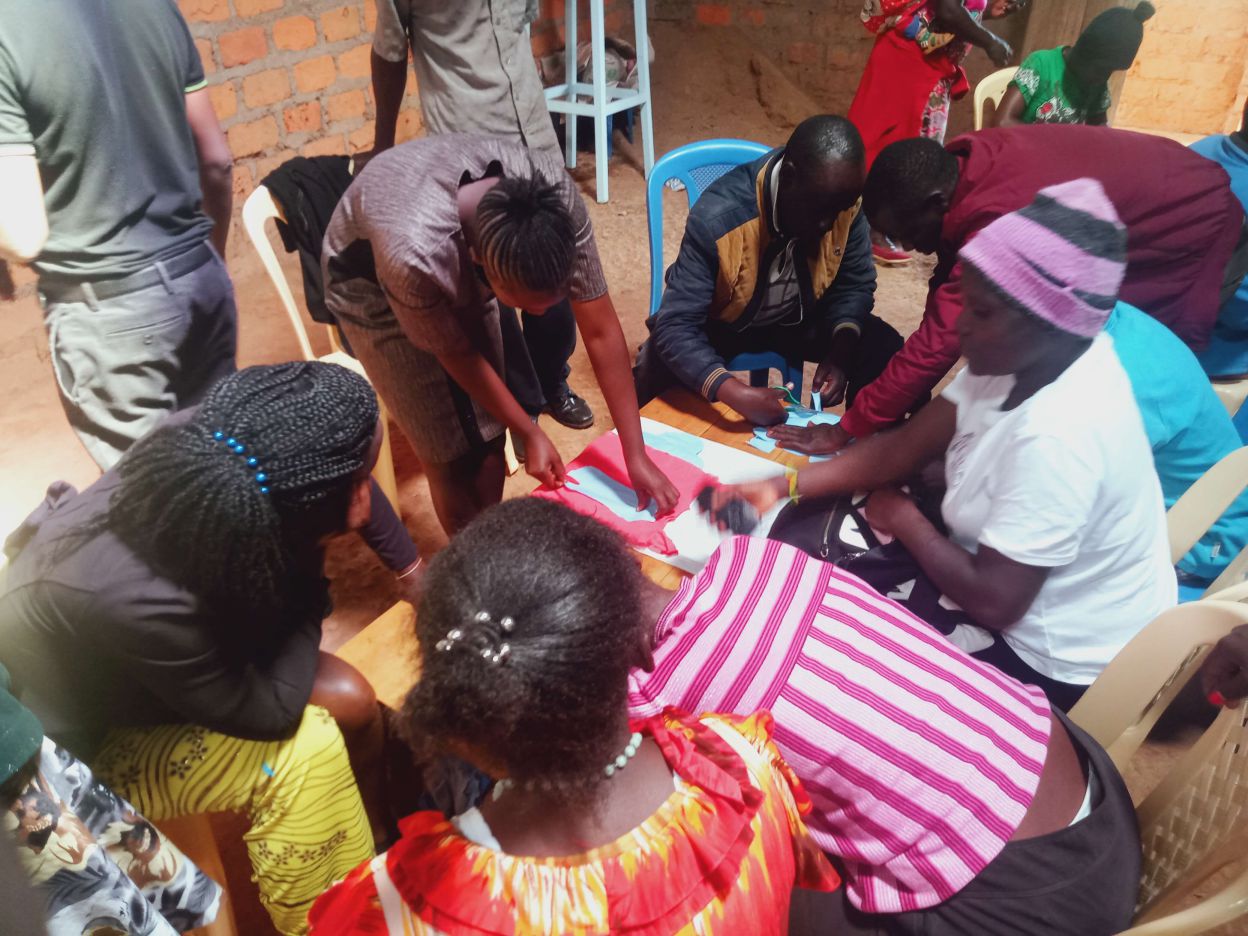
A Vision of Empowerment: Women’s Dignity and Wellbeing
This initiative empowers women in rural areas who lack access to safe sanitary pads during their menstruation. Particularly in challenging economic times, many individuals in rural Kenyan areas cannot afford commercial sanitary products and resort to unhygienic alternatives. In response, Amsha Africa and Women Development Fund (WODEF) have formed a partnership to provide knowledge and practical skills in crafting reusable pads using locally available materials in Kisii and Nyamira counties.
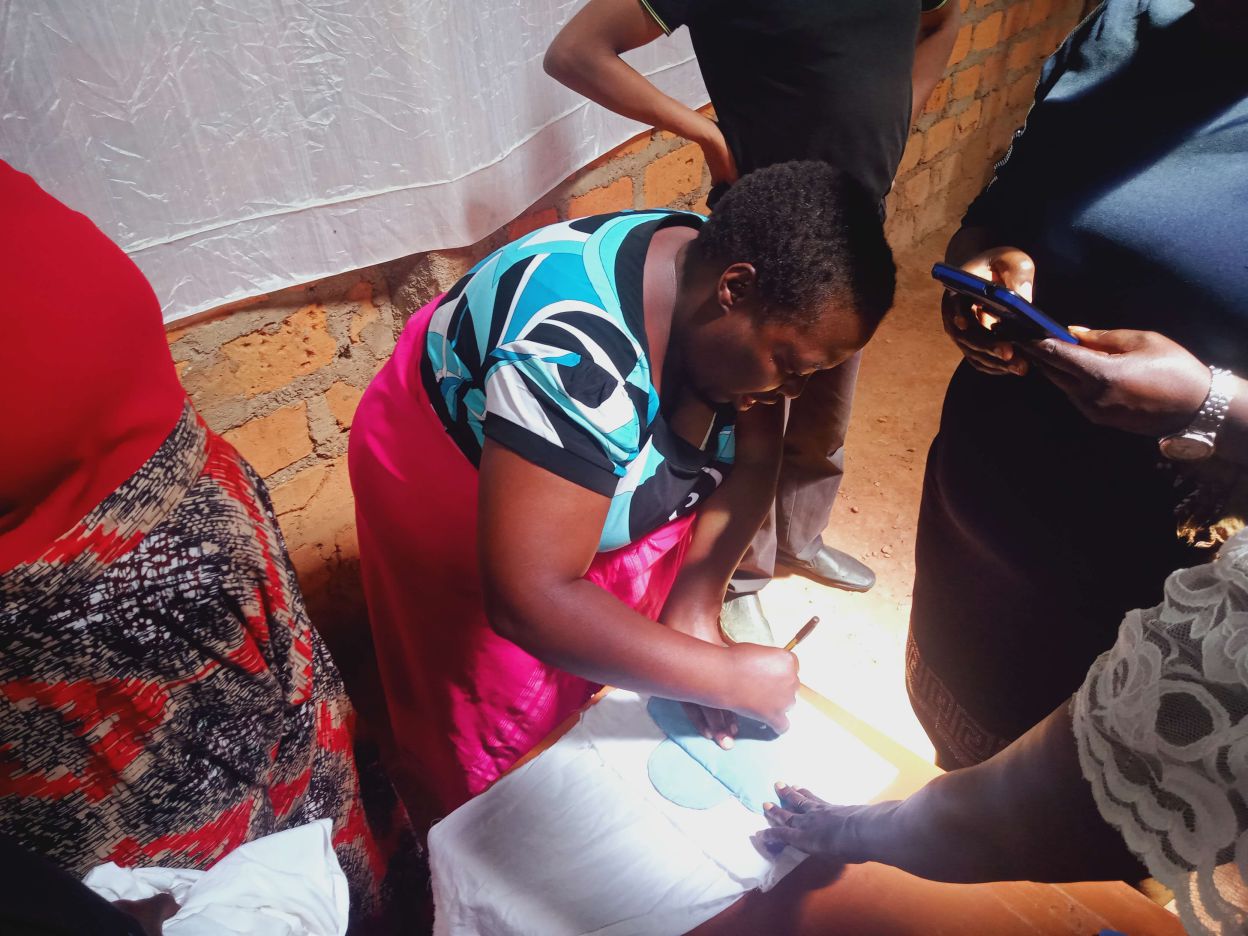
Banana Stems: Transforming Lives
This initiative turns banana stems, a staple in the region, into a resource. By extracting fibers from banana stems, super absorbent pads are created. These fibers are then treated and combined with cloth to craft comfortable, reusable pads that can be washed and reused. Furthermore, the banana fibers are treated with aloe vera and eucalyptus sap (both abundantly available in the region) to ensure antibacterial properties, making the pads germ and infection-free. Through this project, girls from less privileged families gain valuable skills, enabling them to create their own pads, alleviating the shame and stigma associated with a lack of menstrual hygiene products and saving money for their families.
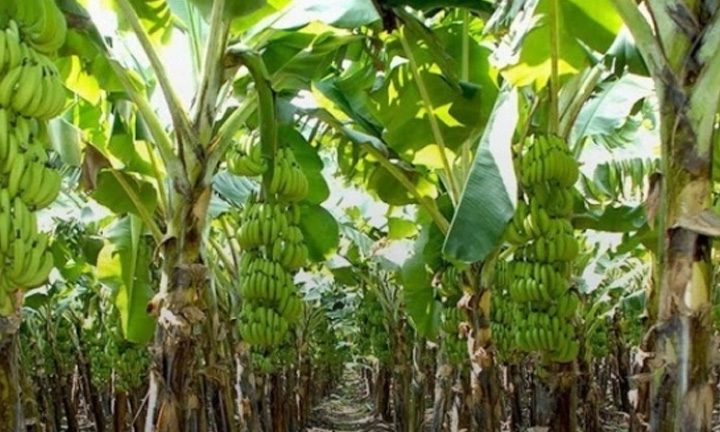
Transforming Lives: The Dignity Pad Initiative
The Dignity Pad (DP) Initiative, led by WODEF, aims to enhance sexual reproductive health among young women and girls in Kenya. It focuses on producing Organic Sanitary Pads and Napkins from banana stems. The initiative relieves young women and girls in high poverty-stricken families from the heavy financial burden of purchasing conventional sanitary pads. DP aims to improve menstrual health management and hygiene, ensuring that no girl misses school due to a lack of sanitary pads. It also seeks to de-radicalize the high stigma levels associated with menstrual management among young women and girls in communities.


Great initiative!
Amazing. Can’t wait to see more
This is incredible, keep up the good work!